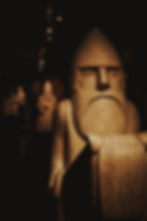
So often we hear about people who are living in Britain to be Anglo -Saxons. Less think about Scots and Welsh seems to be as enigmatic and romantic as Irish. Then, on top of that, you discover there are Cornish with their own language and culture.
5 that things puzzle me.
FIRST English are Anglo-Saxons.
SECOND Everybody speaks posh, if not like the Queen but The Queen‘s English At least.
THIRD English drink tea all the time.
FOURTH Great Britain - England- The United Kingdom. What is the sense in that?
FIFTH Viking.

ANGLO-SAXONS
Romans made English so confusing! Nope..
They did not like to mix with locals.Hence, they have spent around 500 years over here .
Anglo- Saxond were not the only who came over here... there were Jutes,do you remember ?Sea nomads from the modern Southern Sweden.
Where are they ? Why they are forgotten ? They did not go anywhere they are here in Kentish dialect, People of Kent and who knows where.
The Anglo-Saxons. Angles ? Gave name to the country(East Anglia) and disappeared -daluted in local and Saxon tribes.
But what do you see in place-names and history are Saxons.
Funny but those who came after called themselves Anglmen, English.
Actually, as soon as Angles, Saxons and Jutes settled and felt comfortable and happy, their kinsmen came over and became ‘native‘. And those, whom we know as Vikings, in some places began to trade, settle and brought wealth and skills Eastern Coast was in generally peacefully invaded from Humber to The Wash by Danish Vikings, who trade and when there is trade there is a place for village burning and wars. But up North and in the Western countries it was all different. it was a war They came through and went on to the new lands. And only now do we discover those Icelandic sagas with a bit boring details talking about who, when and what...But those Vikings were not Angles Saxons or Jutes, they were kinsmen, relatives. They spoke alike but not the same language as those who came 3 hundred years before them.
Interesting things come with regional dialects: those who came later had no open sound A, use very little sound H and had some other intonations. they created a few Kingdoms, but not the way we think, there were chieftains who were chosen among the best and they would lead the country. So was The King- it was not necesserely hereditary position...
DANELAW
So we come to that staff! Overseas overlooked! it looks as if most historians of Eastern Europe, sorry guys, read old books or modern translations of old books and missed this word.oOh... not to mention haters who call British Anglo-Saxon! Late archaeological discoveries and technology used for research changed the preseption of British history based on Bede manuscripts and views of southerners,( pronounced as https://wooordhunt.ru/word/southerner ( 18/08/21 11:19)
SECOND Everybody speaks The Queens English
As you were told at School and hear on BBC. BBC, probably not so much now. If you heard Michael Kane speaking n his native English, you find it is not exactly the language you imagined! How language was formed, changed? Simple English was brewing naturally but then Normans came and brought Latin, French.
Read Sir Walter Scot who may be made it all a legend, but reflected a true disaster of the time when English and French languages clashed in several levels: social, judicial and cultural.
It was thanks to Vikings from France,who settled there and made a strong presence, that from the 11 century English /Old English became the language of slaves and second class nobles. Latin was the language of law and the church. That is when we got all this magic of spelling things most ridiculously.
And now we have U and non-U words, and words that changed their meaning. E.G( for example) desk and table. Desk - old English word and used for the table we work at, table for eating, in other words for leisure. Suviette and Napkin- serviette made from fabric and napkin usually paper-made.
Nowadays Latin is used in written formal English a lot. It is the rule! LATIN widely used in written English: etc. /e.g. /N.B./ per annum/ per hour/ .Familiar?
Even now, we can trace the border of the Wessex Kingdon( up to the North of London) and the Main sits of Norman conquerors. But how does the world see Britain? Many even call this country Angliterra, Англия etc How about WALES and Scotland! Some people cannot say a thing about Wales..
WHO DO YOU THIONK YOU ARE?

Would you like to add something ?
TO BE CONTINUED
-----------------------------------------------------------------------------------------------------
Article is based on different open sources, books on British History. All together 20 books and no less leaflets on history of local people.I can produce the list on demand. Some links could be interesting for learners:
